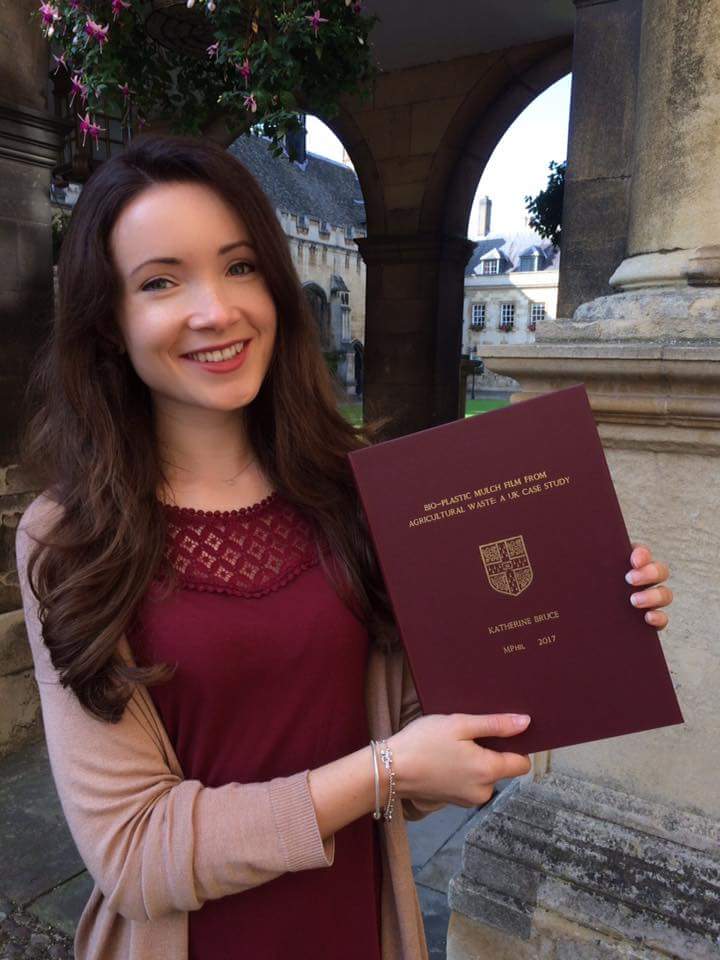Katherine Bruce, Peterhouse, 2016-2017
Dissertation title:
Bio-plastic mulch film from agricultural waste: A UK case study
Students report:
Why did you do the ESD MPhil?
During my time in the oil industry, I was exposed to many unsustainable practices, including the impacts of environmental pollution. The experience fuelled a passion for using my engineering skills for positive change. I quickly realised I needed to gain more knowledge in the sustainability sector and discovered the course after researching online.
How did it help you?
The course helped me to understand how to apply sustainability principles to engineering projects. The variety of modules helped to fill gaps in my knowledge, and I left the course feeling confident in making impactful decisions. One of the most rewarding aspects of the course was the incredibly diverse group of students. We learned so much from each other, both within classes and at social events. Ultimately, the opportunity was the ideal stepping stone into a career within the sustainability industry.
What are you doing now?
After the course, I moved back to Dubai where I joined a boutique sustainability consultancy, AESG. The company’s goal is to transition the region to a more sustainable economy, through green building certifications, energy assessments and government advisory projects. One of my current primary projects involves developing a building energy and water efficiency rating system for the Emirate. Managing the views of many stakeholders has been an exciting and rewarding process.

